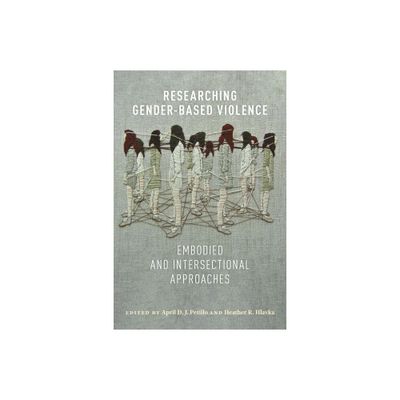Home
Religion and Gender-Based Violence: Global Local Responses to Harmful Practices
Loading Inventory...
Barnes and Noble
Religion and Gender-Based Violence: Global Local Responses to Harmful Practices
Current price: $180.00


Barnes and Noble
Religion and Gender-Based Violence: Global Local Responses to Harmful Practices
Current price: $180.00
Loading Inventory...
Size: Hardcover
*Product Information may vary - to confirm product availability, pricing, and additional information please contact Barnes and Noble
This book takes religion as an entry point for a deeper exploration into why practices of gender-based violence continue and what possible actions might help to contribute to their eradication.
International donors are committed to reducing and ending gender-related harm, particularly violence against women, but clear answers as to why harmful practices persist are often slow to emerge. Theological research struggles to find strong links, yet religion is often referred to by local people as the reason for practices such as female cutting, male circumcision, early and forced marriage, nutritional taboos and birth practices, mandatory (un)veiling, harmful spiritual practices, polygamy, gender unequal marital and inheritance rights and so-called honour crimes. This book presents empirical cases of religious, non-religious and secular actors, including local and international governmental and non-governmental agencies in the fields of development, health and equality policies. Tracing their different understandings of how religion is entangled with gender-based violence both contextually as well as historically, the book sheds light on helpful and unhelpful as well as erroneous and harmful understandings of such practices in local and global perspectives.
Centralising the perspectives of women themselves, this book will be an important read for development practitioners and policy makers, as well as for researchers across religious studies, gender studies, and global development.
International donors are committed to reducing and ending gender-related harm, particularly violence against women, but clear answers as to why harmful practices persist are often slow to emerge. Theological research struggles to find strong links, yet religion is often referred to by local people as the reason for practices such as female cutting, male circumcision, early and forced marriage, nutritional taboos and birth practices, mandatory (un)veiling, harmful spiritual practices, polygamy, gender unequal marital and inheritance rights and so-called honour crimes. This book presents empirical cases of religious, non-religious and secular actors, including local and international governmental and non-governmental agencies in the fields of development, health and equality policies. Tracing their different understandings of how religion is entangled with gender-based violence both contextually as well as historically, the book sheds light on helpful and unhelpful as well as erroneous and harmful understandings of such practices in local and global perspectives.
Centralising the perspectives of women themselves, this book will be an important read for development practitioners and policy makers, as well as for researchers across religious studies, gender studies, and global development.


















